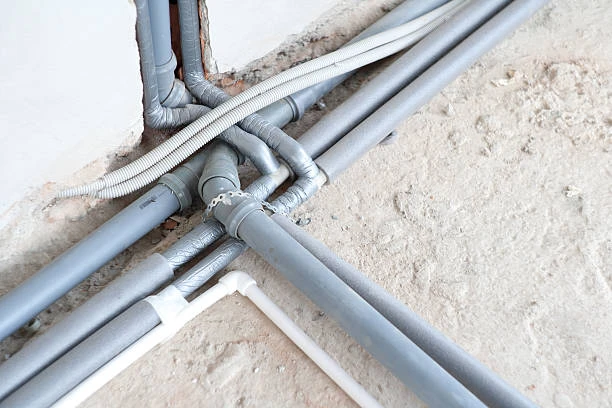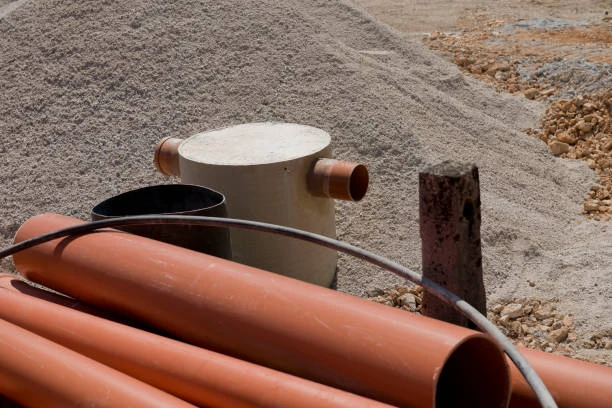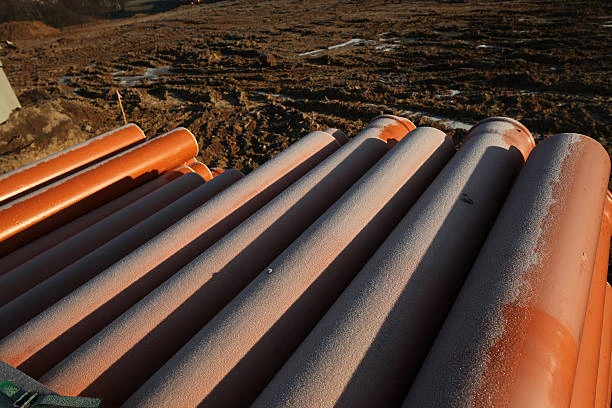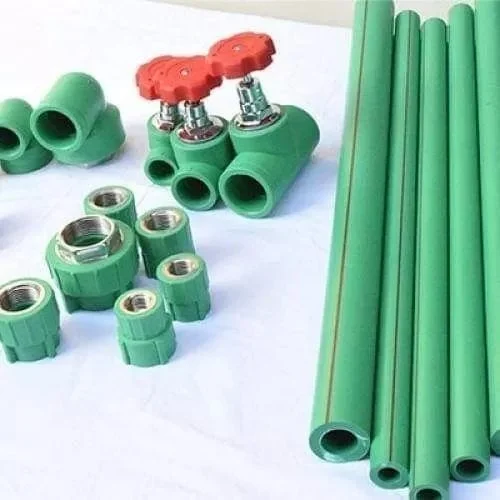Introduction
When it comes to plumbing and drainage systems, the choice of materials plays a crucial role in determining the efficiency, longevity, and maintenance of the entire infrastructure. UPVC fittings and pipes have gained immense popularity for both residential and commercial applications due to their outstanding features. These pipes are durable, cost-effective, and versatile, making them the ideal choice for a wide range of piping needs. In this article, we will explore the numerous advantages of UPVC fittings and pipe, and why they continue to dominate the plumbing and drainage industries.
What is UPVC?
Before diving into the advantages of UPVC fittings and pipes, it’s important to understand what UPVC is. UPVC stands for Unplasticized Polyvinyl Chloride. Unlike regular PVC, UPVC is rigid and more durable due to the absence of plasticizers. This gives UPVC pipes and fitting their unique properties, which make them suitable for a variety of applications, including plumbing, irrigation, and drainage systems.
Key Advantages of UPVC Fittings and Pipe
1. Durability and Longevity
One of the most significant advantages of UPVC pipes and fitting is their exceptional durability. These pipes are resistant to corrosion, rust, and chemical degradation, which ensures that they last for decades without the need for frequent replacements. Whether used in plumbing, sewage systems, or drainage applications, UPVC pipes can withstand harsh environmental conditions and maintain their structural integrity over time.
2. Lightweight and Easy to Handle
UPVC fittings and pipes are much lighter compared to metal alternatives such as cast iron or steel. This lightweight nature makes them easier to handle, transport, and install. Plumbers and contractors find UPVC pipes and fittings easy to work with, as they reduce physical strain and speed up the installation process. The reduced weight also lowers transportation costs, making them an affordable option for large-scale projects.
3. Resistance to Chemicals
UPVC pipes are highly resistant to a wide range of chemicals and corrosive substances. This makes them ideal for industrial applications, wastewater treatment, and chemical drainage systems, where exposure to chemicals like acids and alkalis is common. The material does not react with these substances, ensuring that the pipes remain unaffected and continue to function efficiently over time.
4. Low Maintenance Costs
Once installed, UPVC pipes and fittings require minimal maintenance. Their resistance to rust, corrosion, and chemical damage significantly reduces the need for repairs or replacements. The smooth internal surface of UPVC pipes ensures that water or other fluids flow without any hindrances, minimizing the risk of blockages or scaling. This means fewer maintenance interventions, saving both time and money in the long run.
5. Cost-Effective
UPVC fittings and pipes are more affordable than alternatives like metal pipes (e.g., copper, steel). The lower material costs, combined with the ease of installation, make UPVC a highly cost-effective option for both small and large-scale projects. Moreover, their longevity and low maintenance requirements contribute to further savings, making them an attractive choice for builders, homeowners, and industries alike.
6. Easy Installation
UPVC pipes and fittings are designed for quick and easy installation. They can be joined together using solvent cement, which bonds the pipe and fitting securely without the need for additional tools or specialized equipment. The ease of installation reduces labor costs and minimizes installation time. As a result, UPVC is a preferred choice for plumbing, irrigation, and drainage applications.
7. Smooth Flow and Reduced Risk of Blockages
The smooth inner walls of UPVC pipes promote efficient flow of water or fluids through the system. Unlike rougher materials, such as concrete or clay pipes, UPVC does not encourage the buildup of mineral deposits, rust, or algae. This smooth surface reduces the risk of blockages and ensures uninterrupted fluid flow, which is essential for maintaining an effective drainage or plumbing system.
8. Resistance to UV Rays and Weathering
UPVC pipes and fittings are resistant to UV rays and weathering, making them ideal for outdoor applications. Whether exposed to direct sunlight or harsh weather conditions, UPVC pipes maintain their integrity and performance. This UV resistance ensures that the pipes do not degrade or become brittle over time, making them suitable for irrigation systems, outdoor plumbing, and other external applications.
9. Eco-Friendly and Recyclable
UPVC is an environmentally friendly material because it is fully recyclable. At the end of their lifecycle, UPVC pipes and fittings can be processed and reused, reducing the impact on the environment. By choosing UPVC over non-recyclable materials, you are contributing to a more sustainable future.
10. Versatility in Applications
UPVC fittings and pipes are used in a variety of applications, from domestic plumbing systems to large-scale industrial projects. Their versatility makes them suitable for a wide range of tasks, including water supply systems, sewage systems, chemical drainage, and irrigation systems. UPVC pipes are also available in different sizes and configurations to meet specific requirements, making them adaptable for both residential and commercial purposes.

Common Applications of UPVC Pipes and Fittings
1. Residential Plumbing Systems
In homes, UPVC pipes and fittings are commonly used for water supply, drainage, and wastewater systems. Their affordability, durability, and ease of installation make them an ideal choice for domestic plumbing.
2. Agricultural Irrigation
UPVC pipes are widely used in agricultural irrigation systems. Their resistance to chemicals and UV rays, combined with their lightweight nature, makes them perfect for directing water to crops efficiently.
3. Sewerage and Drainage Systems
UPVC fittings and pipes are extensively used in sewerage and drainage systems, where they transport wastewater and stormwater. Their smooth internal surface helps in maintaining a consistent flow, minimizing the risk of clogs and blockages.
4. Industrial Applications
UPVC pipes are also used in various industrial applications where fluid transport is essential. Their resistance to chemicals and durability makes them suitable for handling aggressive liquids in industries such as chemicals, pharmaceuticals, and food processing.
Conclusion
UPVC fittings and pipes offer a range of advantages that make them the ideal choice for plumbing, drainage, and various industrial applications. From their durability and resistance to chemicals to their cost-effectiveness and ease of installation, UPVC pipes and fittings provide an efficient, long-lasting solution. Whether for residential, commercial, or industrial use, UPVC remains a top choice for those seeking reliable and affordable piping systems.
Frequently Asked Questions (FAQs)
1. What are the main benefits of using UPVC pipes and fittings?
UPVC pipes and fittings offer durability, resistance to corrosion and chemicals, low maintenance, cost-effectiveness, and easy installation.
2. How long do UPVC pipes and fittings last?
With proper installation and maintenance, UPVC pipes can last up to 50 years or more.
3. Can UPVC pipes be used for hot water systems?
No, UPVC pipes are not suitable for hot water systems due to their inability to withstand high temperatures. CPVC or PPR pipes are better suited for hot water applications.
4. Are UPVC pipes recyclable?
Yes, UPVC pipes and fittings are fully recyclable, making them an eco-friendly option.
5. Are UPVC pipes resistant to UV rays?
Yes, UPVC pipes are resistant to UV rays and weathering, making them ideal for outdoor applications.


















